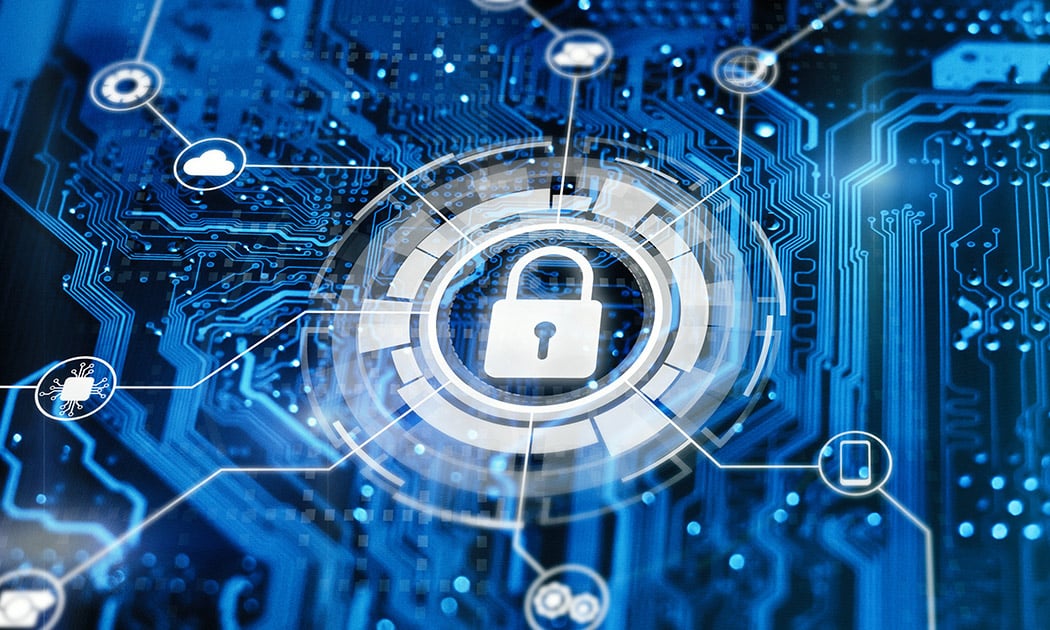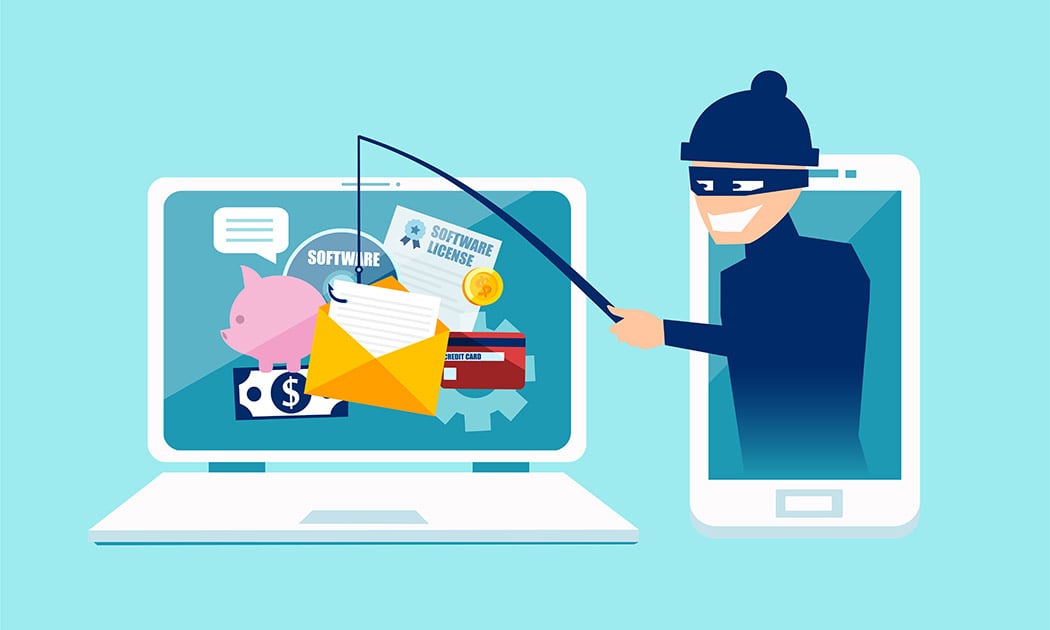The Payroll Blog
News, tips, and advice for small business owners
- Home
- Resources
- Payroll Blog
- What Is Cyber Liability Insurance?
What Is Cyber Liability Insurance?
The importance of cybersecurity these days is not to be underestimated. But what is it exactly? How does cyber liability insurance protect your small business?

If you operate any part of your business online, you should have some cybersecurity walls in place. Cybersecurity options help protect your systems from cyber attackers and malicious software, but what does this type of liability insurance mean for you and your small business?
You likely protect your small business with other types of business insurance including property damage, worker’s comp, general liability, but cybersecurity efforts can slip in prioritization. Today, the most important link for any small business is computer technology and access to the internet. Whether you engage in local or international business, today’s business owners rely on connectivity to buy, sell, and negotiate.
Cybersecurity By the Numbers
In today’s digital landscape, it’s easier than ever for hackers to get into your information and come up with creative schemes to invade your privacy. There is also the group of hackers lying in wait to steal your data or send a malicious virus your way, even to sneak past your firewalls and steal sensitive information. A recent survey within the cybersecurity industry illustrates some alarming statistics:
- Hacker attacks occur every 39 seconds
- 43% of cyber-attacks focus on and target small businesses (among survey respondents, 64% have already experienced a web-based attack, 62% experienced social engineering and/or phishing attacks, and 59% have experienced botnets of malicious code, while 51% experienced denial of service attacks).
- It is expected that individuals and businesses will spend approximately $6 trillion globally on cybersecurity by 2021
- Roughly 77% of businesses/organizations do not have a cybersecurity incident response plan
You don’t want to be one of the small business owners that keeps their information vulnerable. Keep reading to learn the most common cyber risks to business owners and how you can stay protected.
Types of Cyber Risk to Small Business Owners
Cyber risk, also known as cyber-crime or cyber threats, is rampant today. While many of us are aware of some of these threats, many neglect to protect their networks from them. If you’re a small business, this protection is a must. Why? Following are just a few of the most common types of cyber-crimes that might prey on your small business if you’re not prepared, and how it can damage your business.
Social engineering – The practice has grown increasingly common, a technique through which a cyber-criminal makes contact with you through emails, phone calls, or in person. They behave like a legitimate business or company, but they’re not and only use you until you gain enough trust in them that you share personal data and/or important information about your business.
Computer viruses – Computer viruses continue to be one of the most common and familiar types of cyber-crimes, wherein a criminal gains unauthorized access to your computer system. Not only can they totally mess up your computer functions and programs, but they can also gain access to your computer system and any sensitive data you have stored there, which they can then steal. Among the most common computer viruses include malware and Trojans. A computer virus can not only crash and destroy your computer but a network of computers and often, entire computer systems in a workplace. They’re typically spread not only through the internet but through removable devices.
Hacking – Today’s hackers are prolific. For some, it’s a game but when it comes to your small business, it’s not funny. A hacker who accesses a part of or all functions of a computer system or network might cause serious damage. Hackers have the potential to steal important information and data, most specifically through privacy breaches. In most cases, hackers focus their attention on government and corporate accounts, but any business, including a small business that operates online, is at risk for hacking.
DDos attacks (stands for distributed denial of service) – A DDos attack is another cyber-risk similar to hacking. This type of attack causes a temporary or complete interruption of computer servers and networks. When the system goes off-line, certain functions and security is compromised, making the website not only unavailable to customers and users, but vulnerable to unauthorized access wherein hackers gain access to the system.
Botnets – Think of botnets as little spiders that gain access to your home through cracks or unsecured doorways and windows. Botnets behave in a similar way, only they’re controlled by computer hackers from remote distances. The botnets find a way into your computer through spam emails or malware and are effective in attacking not only businesses but also government entities. They work by analyzing the infrastructure of your information technology system. Today, tools are available to detect and block these botnets from entering your computers or network.
Malvertising – As computer technology and defenses improve, so do ways for criminals to gain access to your computer or computer systems. Malvertizing is a technique used by cybercriminals. It’s a technique where an advertisement loaded with malicious code is placed on your website. Once the user clicks on the advertisement, they’re redirected to fake websites or to files that carry malware or viruses that are automatically downloaded onto their computers.
Identity theft, fraud, phishing, spamming, and ransomware are also common types of cyber-attacks that gain unauthorized access to a computer or business.
What is Cyber Liability Insurance?
In a nutshell, cyber liability insurance provides a number of coverage options to protect your small business, whether it’s a home-based business, a brick-and-mortar shop, or an online entity. Statistics regarding breaches, cyber-attackers, and theft of sensitive information is in the news almost daily. Cyber liability insurance promotes effective management and mitigation plans to deal with cyber risk that help protect your business and your business assets.
Cyber liability insurance is also known as data breach insurance or cyber risk insurance. This type of insurance coverage is prevalent in the business insurance industry and growing quickly. Two types of cyber risk insurance policies include either first-party or third-party options.
Note: A third-party cyber liability insurance policy may be part of a professional liability insurance policy that you might already have. Ask your insurance agent, and take the time to double-check, read the small print, and talk to your insurance company about this.
In addition to providing aid in legal fees and expenses, a cyber insurance policy (depending on carrier) can also aid in the restoration of personal data/identities of affected customers as well as in the recovery of compromised data. Some cover the cost of repairing a damaged computer system while others provide coverage for free credit monitoring after a breach.
How Can Cyber Liability Insurance Protect Small Business Owners?
Most insurance companies today offer cyber liability insurance coverage for a number of different types of business entities as well as sizes. Some are designed for specifically technological companies while others provide risk mitigation and insurance for physician practices, small businesses, and international corporations. Your city or county government and public service entities may also be covered with broader types of cyber liability coverage, such as for public sector organizations, transit authorities, and municipal functions.
Cyber liability insurance for small businesses can be individualized and catered to meet specific needs. Remember that network security is a must, and just as necessary for your business as business insurance. Discuss real-time types of party coverages for your small business with your insurance company to ensure that your sensitive data is protected against unauthorized access.
Protect Yourself and Your Business
The key to protecting your small business from unauthorized access, malicious software, and cyber attackers is to educate yourself and understand the importance of cybersecurity, cloud security, and cyber risk to sensitive data.
Compare cost and coverage for small business cyber liability insurance customized to your business needs. Protect your hard work and reduce the risk of damages caused by a breach that can ruin not only your reputation but your business.
Related Blog Posts
View Our Plans and Pricing
Small Business Is Our Business.
This website contains articles posted for informational and educational value. SurePayroll is not responsible for information contained within any of these materials. Any opinions expressed within materials are not necessarily the opinion of, or supported by, SurePayroll. The information in these materials should not be considered legal or accounting advice, and it should not substitute for legal, accounting, and other professional advice where the facts and circumstances warrant. If you require legal or accounting advice or need other professional assistance, you should always consult your licensed attorney, accountant or other tax professional to discuss your particular facts, circumstances and business needs.



